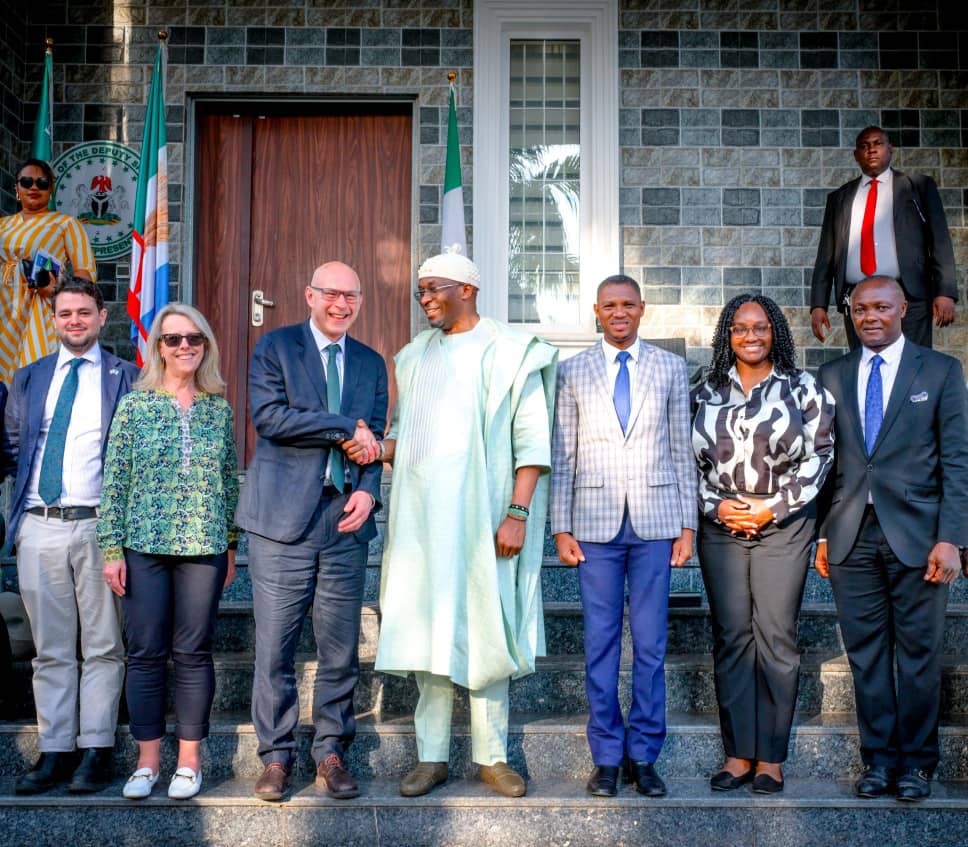By Gloria Ikibah
Deputy Speaker, House of Representatives, Rep. Benjamin Kalu, has said that the decision to abolish death penalty in Nigeria rests with the people.
Kalu who stated this during a visit by officials of the Death Penalty Project and the British High Commission to his office in Abuja on Thursday, stressed the need for open discussions and collaboration among stakeholders, as opinions on the issue vary widely.
He noted that over 130 countries have already abolished the death penalty, either in law or practice. However, in Nigeria, capital punishment is still allowed for crimes such as murder, armed robbery, and treason.
The Deputy Speaker said that the number of death row inmates highlights the need for reforms in the criminal justice system. As chairman of the Constitution Review Committee, he said the committee has been studying the moral, ethical, and practical aspects of the death penalty.
While no bill on the matter is currently before the House, Kalu stated that the committee is considering it, and a proposal could be brought forward soon for debate and public input.
Kalu said, “Internationally, there is a growing trend toward the abolition of the death penalty, with over 130 countries having abolished it in law or practice. This shift reflects a global understanding that justice must incorporate rehabilitation and restorative practices rather than solely punitive measures.
In November 2024, the UN General Assembly’s Third Committee approved a resolution for a global moratorium on executions, aiming for full abolition, which was adopted on December 17, 2024, marking the tenth resolution since 2007 advocating for a moratorium, with support increasing from 104 states in 2007 to 130 in 2024, while opposition has declined. Notably, Nigeria abstained from the recent vote among 22 abstaining states. This trend indicates a strong movement towards the universal abolition of the death penalty. Within the African Union, 48 of 55 countries are now abolitionist in law or practice, with only Egypt and Somalia carrying out executions in 2023.
“The African continent is advancing towards the abolition of the death penalty more rapidly than any other region, with six countries having eliminated the death penalty for all crimes or for ordinary crimes in just the past four years (since July 2021).
We are willing to collaborate with you and have further engagements as we know that aligning our laws with international best practices enhances Nigeria’s reputation on the global stage.
“There’s no bill before the House of Representatives at the moment to address this issue as we speak, but there’s an intention for us to have conversations around it. I’m trying to give it legal framework by presenting it as a bill. We are considering presenting it before the parliament for debate, for us to know whether or not is what our society needs at the moment. It will pass through various stages of public hearing to allow the public make contribution on this subject matter. We are positive that our willingness to engage further on this discussion will send a clear message that we are committed to upholding human rights and ensuring that our criminal justice system reflects fairness and proportionality.”
The Deputy Speaker however stated that as further discussions are ongoing, the goal is not to diminish the seriousness of capital offenses but to create a justice system that is equitable, effective, and respectful of human rights.
“We owe it to our citizens to ensure that their rights are protected and that our laws reflect the highest standards of justice. I urge you all to support us as we take significant steps towards reforming our criminal justice system towards creating a Nigeria that embodies fairness, respect for human rights, and a commitment to justice for all,” Kalu added.
Earlier, leader of Delegation and Co-founder/Co-Executive Director of The Death Penalty Project, Saul LeurFeund, said the visit was to seek the collaboration of parliament on the potential abolishment of death penalty in Nigeria.
He said, “We’ve seen great progress, Zimbabwe abolished death penalty on new year’s eve. I had the pleasure of being here last August on the invitation of the British high commission .
“It will be helpful to have conversation around death penalty in Nigeria. It will be helpful to bring partners together to discuss potential abolishment, to see if we can change discussion around death penalty. So we want to bring our experience and to discuss with you, the possibility on how the Constitution can be amended and anything we can do to provide technical support”.

